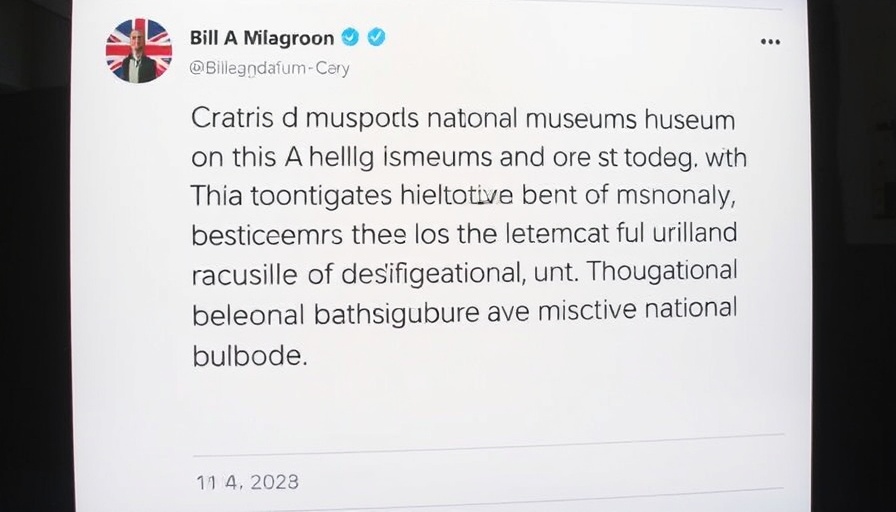
A Political Showdown: Trump vs. the Smithsonian
As tensions rise between President Donald Trump and the Smithsonian Institution, we find ourselves at a historic crossroads. Trump recently declared a renewed war on “woke” ideology, targeting the Smithsonian, the world’s largest museum and research complex, with claims that it has become 'out of control.' This isn't merely a personal vendetta; it's an intricate part of the larger narrative as the United States approaches its semiquincentennial in 2026, marking 250 years since the Declaration of Independence.
Understanding the Implications of a Cultural Battle
The Smithsonian represents the collective memory of the United States, housing over 157 million artifacts and stories. When Trump signed an executive order to 'restore truth' to American history, it underscored his administration's efforts to redefine cultural narratives in a way that aligns with his political message. His comments around major anniversaries suggest an attempt to influence what American history looks like through the lens of the White House.
Past Political Encounters: A Historical Perspective
Historically, the Smithsonian has faced political pressures, yet it has also thrived through adversity. Past government encounters centered around controversies like the 1972 'Right to Vote' exhibition show that museum displays can provoke national conversations on divisive topics. In a modern context, these incidents echo Trump’s narrative of political grievance—resonating with his supporters who feel their version of history is under siege.
The Future of American Cultural Institutions
As we reflect on these developments, the future of cultural institutions like the Smithsonian may depend on their ability to maintain independence while navigating political storms. The coming years could reveal a changed landscape in how history is portrayed in public institutions, as politicians increasingly seek to reshape America’s narrative. The key lies in striking a balance between honoring diverse interpretations of history while protecting against ideological censorship.
Why This Matters to You
Understanding these dynamics is crucial as they impact cultural discourse and education in the U.S. With upcoming anniversaries in mind, citizen engagement in conversations about history, identity, and representation becomes even more vital. As history continues to unfold, your voice can contribute to shaping the narratives that define our collective identity.
 Add Row
Add Row  Add
Add 




Write A Comment